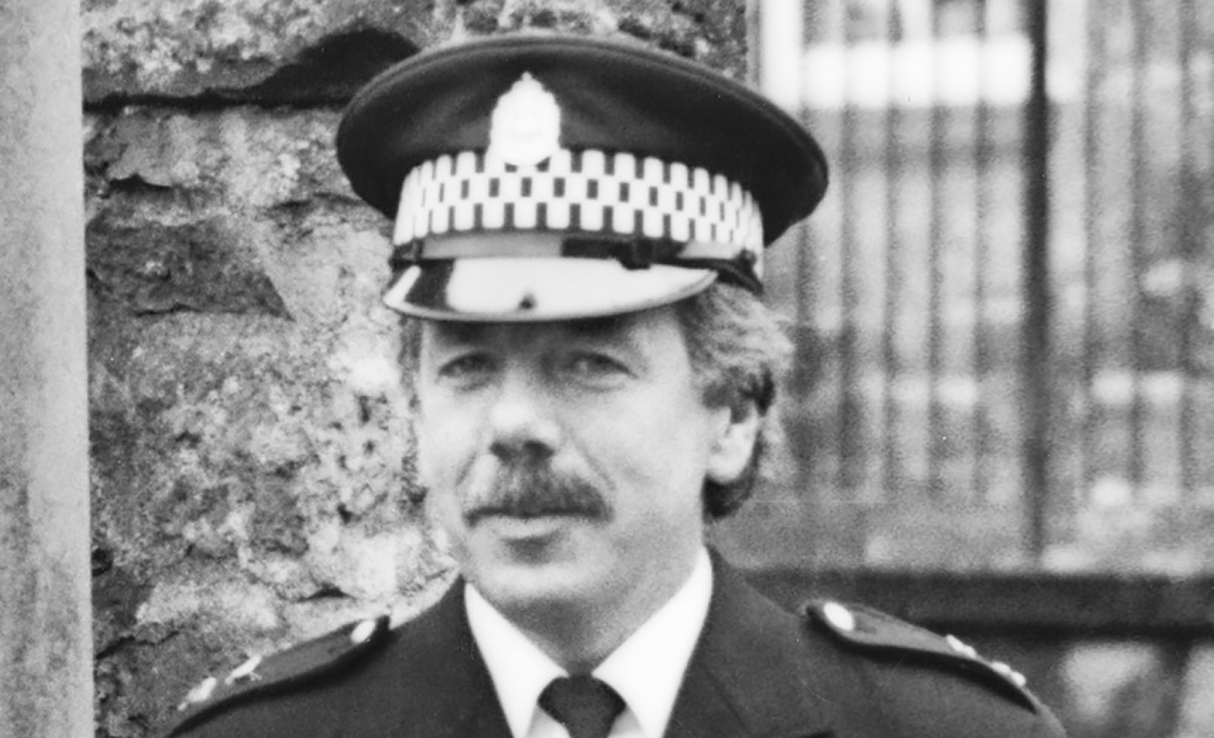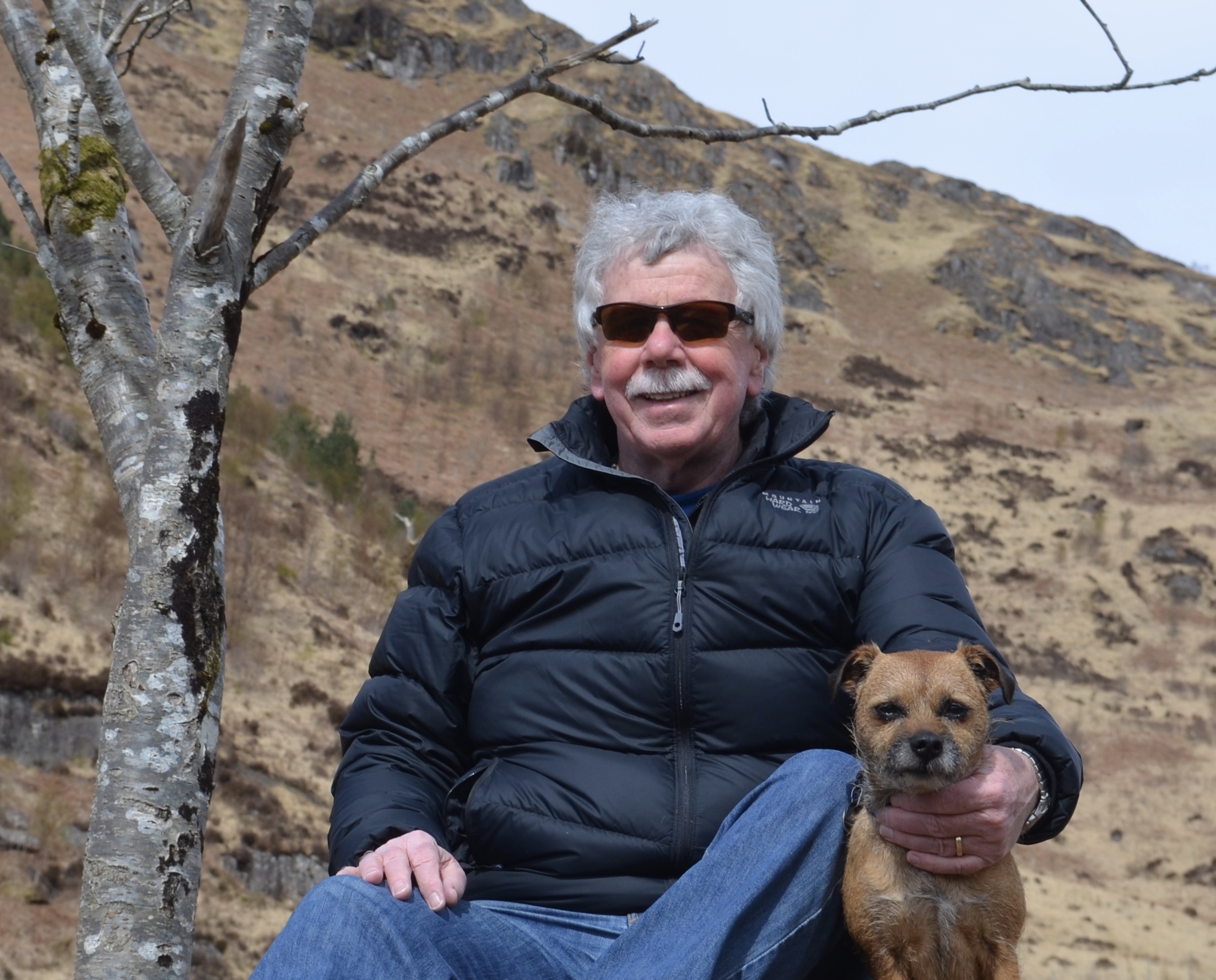
DURING 30 years in the police, Ian McNeish has done it all – from knocking out a knife-wielding assailant with a pool cue to being chased by a bull.
Now, 14 years after leaving the force, Ian, 71, has remembered his life in uniform in his memoirs, The Fearn Bobby.
Packed with anecdotes, it traces his policing career across urban and rural beats and examines Scottish policing then and now.
But the former Chief Inspector from Bonnybridge, who likens much of his career to that of TV’s Highand policeman Hamish Macbeth, says Police Scotland has become too centralised and should place more emphasis on community policing.
“I think people’s attitude towards the police is changing, they are less trusting,” said Ian.
“Apparently more police officers have been recruited but where are they? A lot are behind desks in central units and departments.
“Policing today has become centralised and that’s not helping communities.
“You can’t have someone in Central Scotland decide a standard operating procedure for a local officer to handle a situation in a wee town up north.”
For Ian, rural policing required a different approach. He knew the community he was policing and when to employ discretion and leniency.
Ian joined the force in 1974 when he was 27. He trained in Dingwall and within seven months was chosen to singlehandedly police the rural beat of Fearn, covering a Highland population of 6000.
“My first boss said that a police officer working in a community has a special role. You have a responsibility to everyone on your beat, so get to know them and be visible,” said Ian.
“It’s the pinnacle of policing, to be able to identify yourself in a community as ‘their’ police officer, to be liked and trusted.
“Being on my own, I was like Hamish Macbeth.
“I loved being able to just get on with my job without central interference.
“One minute you might be helping the local doctor lift a patient from the floor back into bed, helping a farmer with his firearm certificate or being the one to impart tragic news to a family.”
His memoir also reveals a tougher side to the job, including the aftermath of Dunblane, policing miners’ strikes in the 80s, facing knife attacks and delivering bad news to families.
“Police training equips you to walk towards danger, tragedy, mayhem, chaos and it teaches you to stay calm, focussed and take control,” reflected Ian.
“Fearn was where I was taught the benchmark for policing in communities and what was meant by the moral compass of policing.”
Ian worked across East Scotland and rose to Chief Inspector in charge of community safety, based in Stirling.
He left the force in 2004 and looks back on his police career with positivity and pride.
But he doesn’t agree with Police Scotland’s current direction.
Ian added: “I believe we are losing touch with communities.
“The only way to change that is to put more police offers into communities and actually have them based there, not centralised to drive out to the somewhere for a couple of hours during the day.
“Is it financially possible? I don’t know but I think it’s necessary.”
The Fearn Bobby will be released on March 30 by Extremis Publishing
The McNeish Files…
The fry-up was lying in a heap on the carpet, directly below where it had struck the wall
I got a call on a Friday about a domestic disturbance in Tullibody.
When I arrived, the couple were giving it laldy but there was no violence.
The wife had been in the pub all afternoon so made her husband a fry-up for dinner. It was lying in a heap on the carpet, directly below where it had struck the wall.
Their loud conversation centred on the quality of the food. I asked if this was a new kind of art: the splat on the wall with colourful streaks leading vertically down to the plate on the carpet.
They both looked at the wall then burst out laughing.
What good would it have done if I had simply arrested one of them?
Instead, I helped them clean up and we had a cup of tea.
When I left, he was heading out to get them both a fish supper.
If I hadn’t bumped into the rack I’d have been stabbed
I was working late with a Tullibody colleague when we were asked to assist at an incident in Alloa. Someone had broken into a pub and was still inside.
We split up to flush out the intruder. Just as I entered a dark room, I bumped against the pool cue rack, then a figure leapt up from under the pool table.
He lunged at me with a knife.
I reached behind me and grabbed a pool cue. As he lunged, I stepped to one side, swung it heavy end first, and hit him on the side of his head. He collapsed as though poleaxed.
If I hadn’t bumped into the cue rack I would have been stabbed. Sometimes you get lucky.
Afterwards, the boss wanted to know why I didn’t use my standard baton.
“No time,” was my reply.
We cleared the fence like Olympic hurdlers, then lay about laughing
We were on a search near the Little Chef at Tomatin and had to cross a field containing some cattle and a large bull.
We were corralling the cows into a corner, but it was the bull in the other corner we had eyes on.
When we were halfway across, the bull snorted and charged at our ranks.
Fully-trained police officers and soldiers scattered like ninepins. We cleared the fence like Olympic hurdlers then lay about in hysterics.
Little Chef diners no doubt chuckled.
Farmer liked hearing me out and about
On the subject of police officers being visible in communities, a widowed farmer near Fearn stayed up late most nights doing the farm books.
The farm was isolated. She was nervous and asked for my vehicle call sign. She liked to listen to the police radio and asked me check something out using my radio.
She listened for my call sign and said hearing me out and about in the area made her feel safe.
Get the cops to take their drawers off the washing line!
There was a Royal visit at Highland Fabricators’ Nigg Yard off the Cromarty Firth in 1974.
The Queen was walking along a line of dignitaries and at the end of the line was the big boss. Normally, he was cool as a cucumber but as the Queen got closer, he seemed more and more agitated.
The Queen’s tour would include calling in at the nearby police accommodation. To his PR, in a strangled whisper, he said: “Get the cops to take their drawers off the washing line!” The PR glanced over to the cottage and, to his horror, saw police shirts and underwear flapping in the breeze.
The Inspector saw Harry, in full uniform, sledging down the hill
One of my colleagues in Tain, Harry Munro, was on duty when a complaint came in of a group of kids disturbing the neighbourhood by shouting and yelling while sledging.
The Inspector ordered Harry to stop them. Harry was taking a long time about it, so the Inspector headed out to check. When he reached the hill, he saw Harry sledging, in full uniform, along with the children. There was much merriment but no shouting and yelling as Harry had got them to be quieter.
The Inspector was furious but soon calmed down and saw the funny side.

Enjoy the convenience of having The Sunday Post delivered as a digital ePaper straight to your smartphone, tablet or computer.
Subscribe for only £5.49 a month and enjoy all the benefits of the printed paper as a digital replica.
Subscribe